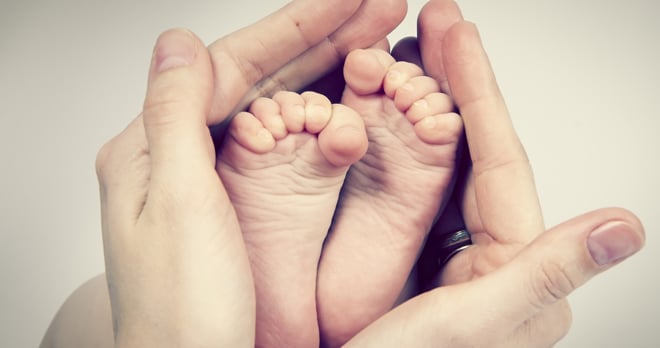Group B Streptococcal infection in pregnancy: further research supports the need to change to universal screening rather than risk based management

Studies undertaken at Northwick Park Hospital, London:
In 2014/2015 Northwick Park Hospital in London undertook a research study to see if the introduction of universal GBS screening in all pregnant women would make a difference to their outcomes of early-onset neonatal infection. They had reason to do it, too; the incidence of GBS infection at Northwick Park being four times higher than the national average.
As part of the study, Northwick Park offered antibiotic treatment for all women in labour who had tested positive for GBS carriage. The results showed a significant reduction in neonatal infection rates from 1.65/1000 live births to 0.33/1000 live births.
However, despite the results, the Trust reverted to risk-based screening for maternal GBS infection rather than universal screening as this was the national guidance in place.
A further review into the outcomes of neonatal GBS infection following the re-introduction of risk-based screening followed (1). The further study demonstrated a fivefold increase in GBS in neonates. The authors of the study commented:
“We believe that this observational study…provides further evidence that SBIAP [screening based intrapartum antimicrobial prophylaxis] approach is significantly more effective in prevention of EOGBS [early-onset group B Streptococcus] in our setting.”
Study undertaken in Hong Kong:
Another paper published by doctors in Hong Kong looked at the incidence of neonatal GBS infection following the introduction of universal screening in all of the public hospitals in Hong Kong. The researchers noted that the majority of women who were offered screening accepted it and those who tested positive then received antibiotic therapy in labour.
The paper (2) concluded that with universal screening the incidence of neonatal infection decreased from 1/1000 live births to just 0.24/1000 live births. Their conclusions mirror those reached in the London study.
These studies might not be enough to justify a change in NICE guidance, but the findings are certainly revealing. It would therefore be very encouraging if further experimental research could be undertaken across other UK maternity units to see whether these findings are repeated.
The incidence of neonatal infection in the UK is very concerning and the catastrophic effects of this infection for families should not be underestimated by NICE (National Institute for Health and Care Excellence) and the RCOG (Royal College of Obstetricians and Gynaecologists), especially as the infection can be so easily treated if caught prior to birth.
Having worked with families whose babies have suffered with meningitis resulting from GBS infection, I believe further research is vital to help push for an amendment of the national guidelines; in the meantime information on private testing for GBS testing is available through the Group B Strep Support Charity.
1- Early-onset group B Streptococcus (EOGBS) infection subsequent to cessation of screening-based intrapartum prophylaxis: findings of an observational study in West London, UK
Guduru Gopal Rao, Jane Townsend, Daniel Stevenson et. al.
BMJ Open. 2017 Nov 19;7(11):e018795. doi: 10.1136/bmjopen-2017-018795.
2 - Prevention of early onset group B streptococcal diseased by universal antental culture-based screening in all public hospitals in Hong Kong
Teresa W.L. Ma, Viola Chan, C.H. So et. al.
The Journal of Maternal-Fetal & Neonatal Medicine Volume 31, 2018- Issue 7
If you think you might have a claim for compensation as a result of Group B Strep infection, contact our enquiries team to find out if our specialists can help you.
Call today